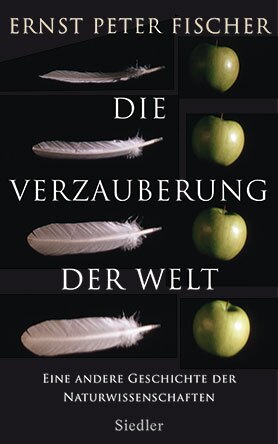Ernst Peter Fischer
Die Verzauberung der Welt
[The enchantment of the world: An alternative history of the natural sciences]
- Siedler Verlag
- Munich 2014
- ISBN 978-3-88680-981-3
- 336 Pages
- Publisher’s contact details
Ernst Peter Fischer
Die Verzauberung der Welt
[The enchantment of the world: An alternative history of the natural sciences]
Sample translations
The return of mysteries
The title of Fischer's book makes it clear that he intends to offer an alternative view on the purpose and status of the natural sciences. Fischer has formulated an antithesis to the concept of the "disenchantment of the world," advanced by Max Weber and picked up by Horkheimer and Adorno in The Dialectic of Enlightenment. As popularly understood, it holds that with their ruthless insistence on calculability, modern science and science-oriented technology have robbed nature and human life of all their secrets, rationalizing and explaining everything.
In lively and vivid fashion, Fischer shows that this not only a mistaken, but a positively "grotesque" idea, which restricts human thought and encourages inappropriate skepticism toward or exaggerated faith in science. In its stead, the author proposes an "alternative history of science," which doesn't set faith and knowledge at odds with one another. Fischer argues that every instance of scientific progress raises new and more complex questions and that the most advanced explanatory models of the world deepen the mysteries of the cosmos rather than dispelling or eradicating them. One of his examples is the law of gravity, which seemingly explains why bodies fall to earth but which also raises questions about "the deeper mystery of gravitation pull." Tellingly, at the start his book, Fischer cites Albert Einstein's definition of the mysterious as "the basic sensation that occurs at the cradle of all true science and art."
Fischer directs a polemic against school and university teaching that aims to take away this basic sensation and our sense of wonder. He attempts to reconcile science and art, the natural sciences and the humanities, which have drifted further and further apart since Einstein's day, by recalling their common roots in the Romantic era. He treats scientific theories as creative products of the mind and researchers as storytellers whose interpretations of the world border on poetry. His plea for greater amazement and curiosity, which would relativize the dualistic view of the world in the West, is no dry argument. On the contrary, Fischer has written a rather unsystematic, passionate work full of surprises and anecdotes. It's easy to read and completely current in every cultural context.
Translated by Jefferson Chase

By Kristina Maidt-Zinke
Kristina Maidt-Zinke is a book and music critic at the Süddeutsche Zeitung and also writes reviews for Die Zeit.
Publisher's Summary
Most people believe that science has demystified the world – anything that can be worked out holds no more mysteries. In fact quite the opposite is the case, says bestselling author and science journalist Ernst Peter Fischer. It is only by means of continual research, by asking questions over and over again and with boundless curiosity – in short, with precise scientific
understanding – that the true secrets of the world can unfold to us.
Fischer has developed this core idea, taking as examples great scientists and their discoveries from the 16th century to the present day, and in doing so has created a completely different history of science. This is a fascinating jaunt through modern science – and an amazing guide.
(Text: Siedler Verlag)
